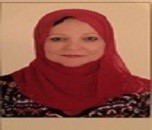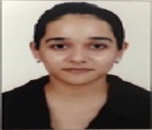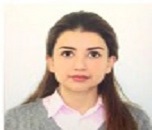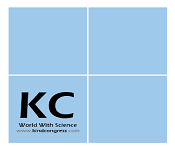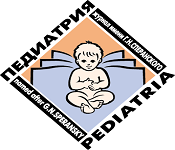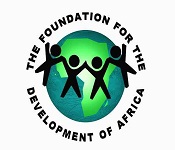Theme: COVID-19 Effect On Pediatrics
Pediatric Healthcare 2020
Pediatrics is a branch of medicine which deals with the health (physical, mental & social) and medical care, and services including prevention, diagnosis & treatment of acute & chronic diseases in infants, children & adolescents up to the age of 18. Pediatricians are the medical practitioner specializing in the child health and their diseases.
The field pediatrics includes a broad range of subspecialties; few of them are Neonatology, Pediatric Cardiology, Pediatric Hematology/Oncology, Pediatric Surgery, Pediatric Emergency Medicine & Critical Care, Pediatric Infectious Diseases, Pediatric Hospice & Palliative Medicine, and Pediatric Pulmonology. We welcome all the attendees across the globe to get involved in the 2nd International Conference on Pediatrics, Neonatology and Healthcare to be held during April 16-17, 2020 which was supposed to be held at Amsterdam, Netherlands but unfortunately due to the ongoing global pandemic disease outbreak we are conducting webinar/virtual event.
Pediatric Healthcare 2020 is a get together of the experts in the field of pediatrics. It majorly provides keynote forums and lectures by eminent professors, academicians, pediatricians, industrialists, young researchers. Our mission is to connect the world’s professionals to allow them to be more productive and successful. Pediatric Healthcare 2020 provides an opportunity for Pediatric, Neonatology and Healthcare professionals to meet, exchange ideas, learn, work and to promote business relationships.
We cordially welcome you to join us for this virtual event, all that we can do in this situation is to support each other, avoid mass gatherings, stay home, stay safe. The goal of webinar/online event is to make international online events as safe as possible from public health risks of Covid-19 with technical support to host for the event. Thanks to all the doctors, nurses, pharmacists, medical staff extending their services.
Pediatrics is the branch of medicine that deals with the physical, mental and social health of infants, children and adolescents. Pediatricians are medical doctors who specializes in the field of Pediatrics. Pediatric care enclose a wide range of healthcare services extending from prevention to the diagnosis and treatment of acute and chronic diseases in children from birth to young adulthood.
Subspecialties of Pediatrics include:
- Neonatology
- Pediatric Cardiology
- Pediatric Nephrology
- Pediatric Rheumatology
- Child abuse
- Pediatric allergy & Immunology
- Pediatric Neurology
- Pediatric Obesity & Nutrition
- Pediatric Hematology & Oncology
- Pediatric Pulmonology
- Pediatric Psychology
2. Neonatology and Perinatology:
Neonatology is the subdivision of pediatrics that aims to provide intensive medical care to the newborn infants due to low birth weight, sepsis, pulmonary hypoplasia, congenital malformations, prematurity. It is the hospital-based specialty and is usually practiced in neonatal intensive care units. Perinatology is a subspecialty of obstetrics that aims to provide care to fetus, complicated and high-risk pregnancies. Perinatology is also known as maternal-fetal medicine. Perinatologists are specially trained to provide medical services such as diabetic care, management of multiple gestations, level II ultrasound of the fetus genetic amniocentesis.
Pediatric orthopaedics is the branch of medicine (surgery) that deals with diagnosis, treatment, and management of children's musculoskeletal problems which include evaluating and treating bones, joints and muscle problems. Common orthopedic conditions in children are knee arthroscopy and meniscectomy, hip replacement, joints & bone infections, limb and spine deformities: Club foot, Scoliosis, Fractures, spinal deformity.
Most common orthopaedic conditions in children:
- Knee arthroscopy and meniscectomy
- Hip replacement
- Joints & Bone infections
- Limb and spine deformities: Club foot, Scoliosis
- Fractures
- Spinal Deformity
Pediatric cardiology is the subdivision of cardiology which is concerned with the study of disorders and diseases of the heart as well as circulatory system in children within the age limit of 0 to 18 years. Some of the major cardiac problems in children are: Anomalous Coronary Arteries/Fistulas, Anomalous Pulmonary Venous Return, Aortic Stenosis/Bicuspid Aortic Valve, Atrial Septal Defect (ASD, Atrioventricular Septal Defect (AVSD), D-Transposition of the Great Arteries & Ebstein's Anomaly. About one in every 100 children has a heart problem these defects can be treated with medicine, surgery or other medical procedures.
Most common heart diseases in children:
- Congenital heart disease
- Atherosclerosis
- Arrhythmias
- Kawasaki disease
- Heart murmurs
Oral hygiene is very important in case of children and parents need to take complete care in this case. Pediatric dentist promote dental health of children from birth through adolescence and serve as educational resources for parents. Thumb sucking habit after the evolution of the permanent teeth, tongue thrusting, lip sucking can lead to dental complication. Tooth grinding, tooth decay and gum diseases are some of the common dental issues in children.
Types of Orthodontic problems encountered in children:
- Crowded teeth and spacing issues
- Buck teeth
- Underbite
- Overbite/deepbite
- Openbite
- Crossbite
- Ectopic teeth
- Impacted teeth
- Missing teeth
Pediatric endocrinology is the subdivision of Endocrinology which deals with the diagnosis and treatment of children with endocrine diseases and disorders. Commonly encountered endocrine disorders in childhood are diabetics’ mellitus, hypothyroidism, hyperthyroidism, calcium disorders and disorders of puberty. Obesity is also one of the endocrine disorders, so healthy diet and physical activity is necessary. The main signs include poor growth or abnormal pubertal development.
Endocrinology Disorders in children:
- Diabetes mellitus (Type 1 & Type 2)
- Hypothyroidism
- Hyperthyroidism
- Short Stature
- Disorders of Puberty
- Congenital Adrenal Hyperplasia (CAH)
- Turner Syndrome
- Calcium Disorders
- Disorders of Sexual differentiation
Pediatric nurses are directed to provide medical care to neonates and children up to adolescence in an in-patient hospital or day-clinic. Duties of a Pediatric nurse are: Normalize the life of the child during hospitalisation, minimise the impact of child’s unique condition, respect the roles of the families in the care of their children, prevention of disease and promotion of health of the child.
Types of Pediatric Nursing:
- Direct nursing care
- Neonatal nursing
- Pediatric emergency nursing
- Palliative Pediatric nursing
8. Pediatric Immunology and Infectious Diseases:
Infectious diseases are caused by microscopic germs (bacteria & viruses) that enter the body and produce harmful consequences. Children are often prone to infectious diseases, as they have less immunity to fight against the foreign bodies. Childhood infectious diseases are chickenpox, measles, mumps, whooping cough, diarrhoea, vomiting. Infection may be caused by bacteria or virus, in some cases it will be difficult to determine the origin but can be diagnosed through the “culture test” of blood or urine.
Most common Infectious diseases in Children:
- Chickenpox
- Fifth disease
- Hand-foot-and-mouth disease
- Flu, including H1N1 (Swine flu)
- Meningitis
- Whooping cough (pertussis)
Pediatric neurology, or neurological surgery, is the medical specialty concerned with the prevention, diagnosis, surgical treatment, and rehabilitation of disorders which affect any portion of the nervous system including the brain, spinal cord, peripheral nerves, and extra-cranial cerebrovascular system of children. Concussion, neonatal neurology, brain malformations, headache/migraine, metabolic diseases affecting the nervous system, neuro-oncology, sleep disorders, developmental disorders including autism, neuromuscular disorders including muscular dystrophy and congenital myopathies are some of the neurological disorders seen in children. Key treatments for neurological disorders CyberKnife, Deep Brain Stimulation, Gamma Knife Radiosurgery and Vagal Nerve Stimulation.
- Pediatric sleep disorders
- Developmental disorders including autism
- Muscular dystrophy and congenital myopathies
- Brain malformations
- Neuro-oncology
- Brain tumors
- Movement disorders
- Epilepsy & Seizures
- Phakomatosis
10. Pediatric Urology and Nephrology:
Pediatric urology is the subspecialty of surgery in medicine that deals with the disorders of children’s genitourinary systems. Some of the major disorders include bladder control problems, urolithiasis, tumors of kidneys, urinary obstruction. Pediatric nephrology is one of the specialities of medicine that deals with the study of proper functioning of kidneys, prevention and treatment of kidney diseases including dialysis and kidney transplantation. Common renal disorders encountered in childhood are fluid and electrolyte disorders, hematuria/proteinuria, Posterior urethral valve obstruction, Fetal hydronephrosis, Polycystic kidney disease, Multicystic kidney disease, Nephritis.
Though these are different sections but do share few common symptoms:
- Pain during passing urine
- Frequent bed wetting
- Blood in urine
- High blood pressure
- Fever
- Swelling around the eyes, face, feet and ankles
- Significant increase in the frequency of urination
11. Pediatric Psychology and Mental Health:
Psychological/mental deals with physical wellbeing and sickness of a child and the connection between mental/behavioural elements and wellbeing, ailment and infection, the most widely recognized mental clutters in children are anxiety issue, depression and attention deficit hyperactivity disorders (ADHD). Pediatric psychology is a multidisciplinary study of both scientific investigation and clinical practice which delivers psychological services to infants, toddlers, children and adolescents.
Symptoms of psychological disorders in children:
- Unexplained weight loss
- A sudden loss of appetite
- Frequent vomiting
- Eating Disorders
- Headache and stomach ache rather than sadness or anxiety
12. Pediatric Vaccination and Immunization:
Vaccines play a vital role in keeping the children healthy whereas Immunization is the process of becoming immune to (protected against) a disease. Vaccinations can be done in the early stages of life to protect children before they are exposed to the diseases. Immunizations are a cornerstone of pediatric healthcare. The process of immunizations is implemented for the prevention of life-threatening infections was an important driver of improvements in infant and childhood morbidity and mortality.
- Complementary/Alternative vaccines
- Childhood and Adolescent Immunization
- Neonatal Immunization
- Adjuvants in Pediatric Vaccines
- Maternal Immunization
13. Pediatric Pulmonology and Allergy:
Pediatric pulmonology is the branch of medicine that provides exceptional care for children with various allergic and pulmonary diseases. Pediatric pulmonologists and allergists diagnose, and care children affected with various respiratory complications and allergies such as pneumonia, bronchitis, common cold, influenza, food allergies, hay fever and croup. Recurrent respiratory tract infections are one of the most frequent reasons for pediatric visits and hospitalization as the immunity in children is low.
Prevention for pulmonary diseases and allergies in children:
- Good hygiene
- Vaccination
- Avoid allergens
- Take medicines as prescribed
14. Autism:
Autism or autism spectrum disorder (ASD) is a broad range of conditions characterized by a serious developmental disorder that impairs the ability to communicate and interact, challenges with social skills, repetitive behaviour; speech and nonverbal communication. Several medical and mental health issues frequently accompany autism such as epilepsy, OCD, gastrointestinal problems and feeding.
Pediatric Dermatology deals with the surgical and non-surgical aspects of skin, nails, hair (scalp) and its diseases. A pediatric dermatologist is a medical doctor who treats children with these diseases. This field encloses the treatment of complex diseases in neonates, hereditary skin diseases or genodermatoses, and the many difficulties of working with the pediatric population.
Therapies for dermatological disorders:
- Cryosurgery
- Laser therapy
- Photodynamic therapy
- Radiation therapy
- Vitiligo surgery
- Allergy testing
16. Childhood Obesity and Nutrition:
Childhood obesity is one of the major public health crises nationally and internationally. It is the condition where the child put on weight above the normal weight which he/she must be for their height and age. It is a serious medical condition that has impact on both physical and psychological condition of a child. The effects of childhood obesity can persist well into adulthood and more likely to develop several non-communicable diseases at younger age. So, parents should help children develop healthy eating habits, stay active and reduce sedentary time. Proper nutrition services are important when it comes to children, since they are habituating life-long patterns that will be very difficult for them to break later and in preventing disabilities as well as in the treatment of chronic illness. Poor nutrition leads to an increased risk for developing health conditions such as high blood pressure, cardiovascular disease, diabetes, osteoporosis and even hearing loss.
17. Pediatric Hematology and Oncology:
Hematology is the branch of internal medicine that deals with the cause, diagnosis, treatment and prevention of the diseases related to blood. Pediatric hematology is the subdivision within hematology that is concerned with the blood diseases and cancer related to children. Some of the blood disorders are inherited such as Fanconi anemia. Due to poor nutrition children are often prone to blood disorders. Pediatric oncology is concerned with the cause, diagnosis and treatment of cancer in children. Mortality rate of children is more in underdeveloped country when compared to developed country due to limited resources. Most of the common types of cancers in children are leukemia, lymphomas (hematologic oncology) and brain tumors. Treatment includes chemotherapy and radiation therapy.
Children are mostly prone to following hematological disorders:
- Thalassemia
- Fanconi Anemia
- Sickle Cell Disease
- Congenital Amegakaryocytic Thrombocytopenia
- Dyskeratosis Congenita
- Pediatric anemia
- Pediatric factor VII & XIII diseases
- Hereditary disorders of red cells permeability
- Pediatric myelodysplasia
- Pediatric myelofibrosis
18. Pediatric Gastroenterology and Hepatology:
Pediatric Gastroenterology is the subspecialty of pediatrics and gastroenterology that focuses on the disorders of digestive system of children. The proper function of the gastric tract and the internal health of a child are related to the nutrition it receives from its mother or its mother receives. There are fewer common issues that can cause children to have digestive problems, including: celiac disease, bowel obstruction, pancreatitis, hepatitis, Crohn's disease & ulcerative colitis. Pediatric hepatology is the subdivision of internal medicine that focuses the study of liver, gallbladder, biliary system and pancreas including diagnosis, treatment and management of their disorders.
Common gastrointestinal diseases in children:
- Appendicitis
- Diarrhea
- Constipation
- Malabsorption
- Gastroenteritis
- Food intolerance
A rheumatologist is a paediatrician who is specially trained to diagnose and treat musculoskeletal diseases and systemic autoimmune conditions commonly referred as rheumatic disease which include joint, muscles and bone disorders. Juvenile idiopathic arthritis is considered as the most common form of arthritis. The treatment includes medication, physical therapy, splints, and in severe cases surgery to reduce swelling, relieving pain, and maintaining full movement of joints.
- Oligoarthitis
- Polyarthritis
- Systemic
- Enthesitis-related
- Juvenile psoriatic arthritis
- Juvenile dermatomyositis
20. Child Abuse and Prevention:
Child abuse or child maltreatment is causing a physical, sexual or psychological harm to a child, and can occur in a child's home, or in the organizations, schools or communities the child interacts with. Parents must educate the children to spot the signs of abuse often children are afraid to share these incidents so they stay silent as they may feel trapped or due to fear and this is one of the reasons why only few incidents are reported, and many more cases are undetected. If the child is not sharing these matters with their parents, it’s the responsibility of the parent to notice the change in their behaviour and take necessary action.
- Child labour
- Child trafficking
- Gender based violence against girls
- Child marriage
Preventive pediatrics refers to prevention of disease and promotion of physical, mental and social well-being of children with the aim of attaining a positive health. By preventing disease, the child can attain its genetic potential. Prevention of disease can be best achieved through primary care activities such as growth monitoring, immunization, health education, and promotion of breastfeeding. The concept of preventive pediatrics is broadly divided into antenatal preventive pediatrics and postnatal preventive pediatrics. Preventive care aims to keep away the occurrence of diseases, to detect a disease, to avoid or delay complications when the condition is already present, to avoid premature deaths and to improve efficiency. The objective of maternal and child health program is to reduce maternal, infant and childhood mortality, and morbidity to promote reproductive health.
22. Pediatric Emergency Medicine:
Pediatric Emergency Medicine is the branch of medicine that deals with providing highly specialized acute health care to children of all ages and developmental levels, which includes triage, stabilization, diagnosis, treatment and appropriate follow-up care. These problems are commonly serious and may be life-threatening. The Pediatric Emergency Medicine subspecialist is dedicated to progress the science of the field through primary and multidisciplinary research.
Pediatric physiatrists are physicians who specialize in the rehabilitation and medical care of children with brain injuries, spinal cord injuries, neuromuscular disorders, and an array of musculoskeletal conditions. The Child Development and Rehabilitation Center (CDRC) combine clinical excellence with innovative research to provide the best care for children with special health needs.
Related Conferences:
Pediatrics Conferences 2020 | Neonatology Conferences | Paediatric Healthcare Conferences | Global Pediatric Cardiology Conferences | Pediatric Nutrition Events | Clinical Pediatrics Conference | Pediatric Oncology Conference
Recommended Conferences:
17th International Conference on Pediatrics and Pediatric Cardiology March 09-10, 2020 Prague, Czech Republic; 19th World Congress on Clinical Pediatrics April 27-28, 2020, Prague, Czech Republic; 13th Annual Meet on Pediatrics, Neonatology and Pediatric Surgery May 13-14, 2020 Zagreb, Croatia; 32nd European Pediatrics Congress July 22-23, 2020 Florence, Italy; 2nd World Pediatrics Conference August 24-25, 2020 Prague, Czech Republic; 2nd World Neonatology and Child Care meeting September 07-08, 2020 Prague, Czech Republic.
Related Societies:
Asia Pacific and Middle East: Asian Pacific Pediatric Association, The Malaysian Pediatric Association, Asia-Pacific Association of Pediatric Urologists, Asian Society for Pediatric Infectious Diseases, Asia-Pacific Strabismus and Paediatric Ophthalmology Society, Taiwan Pediatric Association, Asia-Pacific Paediatric Cardiac Society, Asia Pacific Association of Pediatrc Allergy, Respirology and Immunology, The Japanese Society of Child Neurology, Japanese Society of Exercise and Sports for Children and Adolescents, Japanese Society of Emergency Pediatrics, Chinese Pediatric Society, Pediatrics Association of India
Europe: European Pediatric Association, European Society for Pediatric Dermatology, The Association for European Paediatric and Congenital Cardiology, European Society of Cardiology, European Society for Developmental Perinatal and Paediatric Pharmacology, European Society for Paediatric Neurosurgery, Italian Society for Pediatric Infectivology, International Society for Social Pediatrics and Child Health, Baltic Association of Paediatric Surgeons
USA and Canada: American Academy of Pediatrics, American Pediatric Scoiety/ Society of Pediatric Research, American Pediatric Surgical Association, American Pediatric Surgical Nurses Association, American Society of Pediatric Hematology/Oncology, American Pediatric Surgical Nurses Association, American Brain Tumor Association, American Childhood Cancer Organization (ACCO), American Pediatric Society Texas City
Special Sessions
In addition to the regular topics, Pediatric Healthcare 2020 will host a number of special sessions, focusing in more depth. Should you be interested in hosting a special session, please contact us at [email protected]
Become an Exhibitor or Vendor!
Pediatric Healthcare 2020 together with the popular and innovative EXPO provide an invaluable platform for Academicians, Private practitioners, Industry leaders in Book Publications, Technologies, Services and Solutions, Products, - representing the entire world of Medical, Science and Technology.
Become an exhibitor, or advertiser for the Pediatric Healthcare 2020 EXPO and its wide range of sessions, talks, expert's opinions, networking to maximize your market presence and customer relationship as well as b2b efforts. Being part of these special conventions gives you the opportunity to showcase your products, solutions and services. Call for Exhibitors 2020 has already started! If your company/organization is interested in exhibiting in this event, find more info at Exhibitors and contact us at [email protected]
Become a Sponsor!
There are many good reasons to sponsor Pediatric Healthcare 2020 in Amsterdam, Netherlands! Investment in the Pediatric Healthcare 2020 sponsorship program is an exceedingly visible, cost-effective way for your organization to showcase your products and services to a worldwide network and show you’re estimated worth.
As a sponsor you receive various benefits including a strong branding presence in our websites, social networking's, and media and throughout the conference. Our PR and marketing activities target an international audience of professionals and well established experts from academia and industry. If your company/organization is interested in exhibiting in this event, find more info at Sponsors and contact us at [email protected]
Global Pediatric Market Report:
WHO has estimated that, in 2015, around 15 million of neonates are born every year and approximately one million die due to preterm birth complications. In addition, there is currently a significant increase in the survival of these critically ill patients, and There is a significant global surge in the number of fetal and neonatal care equipment over the years in order to reduce these complications of prematurely born babies. The focus is on reducing the risk of sepsis, and complications in general, with the purpose of reducing the length of hospital stay, and therefore reducing costs, but most importantly, with the neuronal protection that allows good neurological development in the future of these babies. The most important factors for the birth of premature babies include delayed maternity, induced fertility, lack of proper parental care etc; in future the care equipment should see a growth with the help of rapid technological advancements in collaboration with government support.
The Pediatrics market can be calculated in coordination with the infant mortality rate, death rate and the rate of diseases attacked along with the vaccine production and consumption for the child cure. From the total European population, 13% of the pediatrics suffers from clinical diseases.
At present, Netherlands population is 17,084,459 which shares 0.22% from the world population and among them the fertility rate is 1.74. The estimated growth rate till 2020 is 0.76%. Amsterdam holds with a population of more than 7 million. In 2017, Amsterdam the estimated population is nearly 815,925. The research showed that 8000 babies are born in the southern province of Netherlands annually, around 300 have some sort of defect - particularly heart, kidney and bladder issues and problems with sex organs are more common in Limburg or 3.84% of live births. However, the average rate of birth defects in the Netherlands is 2.84%. Fetal and neonatal care equipment is well designed to determine the disorders in the infants. It is anticipated that the global care equipment market will rise to 12.7 billion USD within 2025. This result in increasing birth rates coupled with prematurely born babies.
Middle East and Africa pediatric healthcare services advertise is developing consistently. Pediatric medical care refers to the health of the children, infants and adolescents. Pediatrics not just manages the physical and psychological wellness yet additionally social wellbeing of children. As per UNICEF, while the childhood death rate has been dropping in the Middle East since 2000, 415,000 kids in the locale keep on dying each year prior to their fifth birthdate. Middle East and Africa contain around 2% of worldwide social insurance use which anticipated that would develop consistently. Mechanical progression and government activities to enhance pediatric healthcare services area are driving the development for pediatric social insurance in Middle East and Africa. Market for pediatric medical care in Middle East and Africa was about US $48 billion of every 2016 and anticipated that would achieve US $63.6 billion by 2023 at CAGR of 4.1%. Therefore, the research on pediatrics is got critical importance to stop the future deaths of new-born, infant and adolescents. Innovations in medical technologies and government initiatives regarding child health care are expected to offer huge opportunities for market expansion.
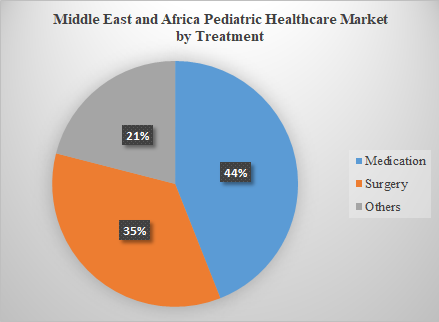
Mostly children are prone to infectious diseases. This survey aims to give a descriptive summary of infants, children suffering from infectious diseases worldwide. These diseases are in terms infectious and deadliest among children and infants if left untreated. Though vaccinations, treatments are available for these types of diseases, if not treated earlier causes death. Most of the infectious diseases are contagious. As children have less immunity to fight against the foreign bodies they are easily affected by these diseases.
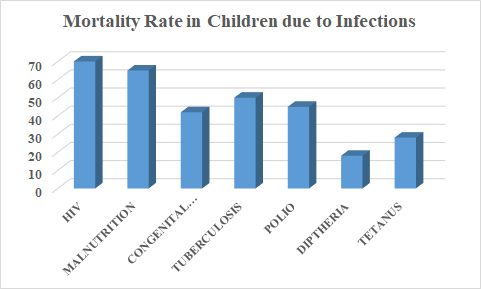
It is our obligation as health professionals to resume and convince the world population about the importance of timely and adequate vaccination in the child population, since most of the infections shown in the previous graph are preventable (Tuberculosis, Polio, Diptheria,Tetanus).
Conference Highlights
- Pediatric Orthopedics
- Pediatric Cardiology
- Pediatric Dentistry
- Pediatric Endocrinology
- Pediatric Nursing
- Pediatric Immunology and Infectious Diseases
- Pediatric Neurology
- Pediatric Urology and Nephrology
- Pediatric Healthcare
- Pediatric Psychology and Mental Health
- Pediatric Vaccination and Immunization
- Pediatric Pulmonology and Allergy
- Childhood Obesity and Nutrition
- Neonatology and Perinatology
- Pediatric Hematology and Oncology
- Pediatric Gastroenterology and Hepatology
- Pediatric Otolaryngology
- Pediatric Rheumatology
- Child Abuse and Prevention
- Pediatric Emergency Medicine
- Clinical Case Reports
- Breast Feeding
- Preventive Pediatrics
- Pediatric Rehabilitation
- Autism
To share your views and research, please click here to register for the Conference.
To Collaborate Scientific Professionals around the World
| Conference Date | April 16-17, 2020 | ||
| Sponsors & Exhibitors |
|
||
| Speaker Opportunity Closed | Day 1 | ||
| Poster Opportunity Closed | Click Here to View | ||
Useful Links
Special Issues
All accepted abstracts will be published in respective Our International Journals.
- Neonatal and Pediatric Medicine
- Journal of Child and Adolescent Behavior
- Journal of Pregnancy and Child Health
Abstracts will be provided with Digital Object Identifier by










